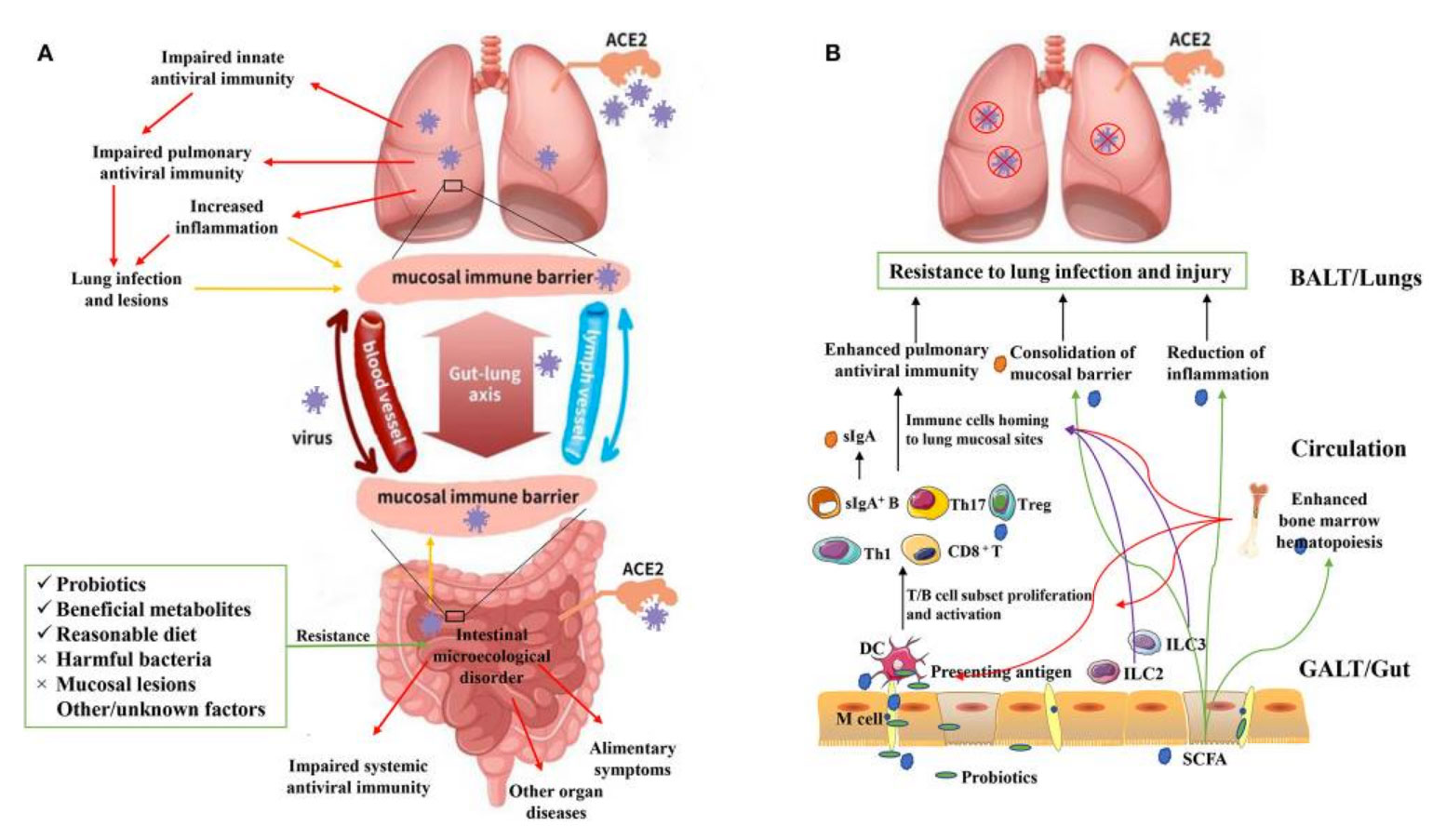Abstract
The coronavirus disease 2019 (COVID-19), caused by severe acute respiratory syndromecoronavirus 2 (SARS-CoV-2), has spread rapidly worldwide,seriously endangeringhuman health. In addition to the typical symptoms of pulmonary infection, patients withCOVID-19 have been reported to have gastrointestinal symptoms and/or intestinal floradysbiosis. It is known that a healthy intestinal flora is closely related to the maintenanceof pulmonary and systemic health by regulating the host immune homeostasis. Roleof the “gut-lung axis” has also been well-articulated. Thisreview provides a novelsuggestion that intestinal flora may be one of the mediators of the gastrointestinalresponses and abnormal immune responses in hosts caused by SARS-CoV-2; improvingthe composition of intestinal flora and the proportion of itsmetabolites through probiotics,and personalized diet could be a potential strategy to prevent and treat COVID-19. Moreclinical and evidence-based medical trials may be initiated to determine the strategy.
INTRODUCTION
Coronavirus disease 2019 (COVID-19), caused by severe acute respiratory syndrome coronavirus2 (SARS-CoV-2), was first reported in December 2019 (Wu et al., 2020). Since then, the diseasehas spread rapidly worldwide and has been declared a global pandemic by the World HealthOrganization. As of 25 May 2020, there were 5,307,298 confirmed cases, including 342,070deaths (WHO, 2020; Zhu et al., 2020). Considering its strong infectivity, poor prognosis, andlack of effective/targeted drugs, potential prevention and treatment strategies for COVID-19need to be urgently developed. The damage to host immune defenseand the “cytokine storm,”an excessive production of inflammatory cytokines, are believed to be the critical causes ofdeteriorated health and even death of patients with COVID-19(Zumla et al., 2016; Pedersenand Ho, 2020; Ye et al., 2020). Given the crucial role played by intestinal flora and itsmetabolites in regulating immune and inflammatory response of the host, the prospect ofmodulating intestinal flora for preventing and treating COVID-19 and related illnesses (e.g., viraland/or bacterial pneumonia, acute respiratory infections, or influenza) has attracted considerableattention from the scientific community (Belkaid and Harrison, 2017; Dang and Marsland,2019; Xu et al., 2020). In order to develop a potential strategy for COVID-19 prevention andtreatment by targeting the intestinal flora, we focused mainly on the effects of SARS-CoV-2 on the host intestinal microecology, as well as the possiblemechanisms through which intestinal flora regulate immuneand inflammatory responses in patients with COVID-19 andrelated diseases. Particularly, the role of “gut-lung axis” andsome indirect evidence for the effect of intestinal floraon the prevention and treatment of COVID-19 have beenhighlighted here... Read full article here.

US National Library of Medicine
National Institutes of Health

